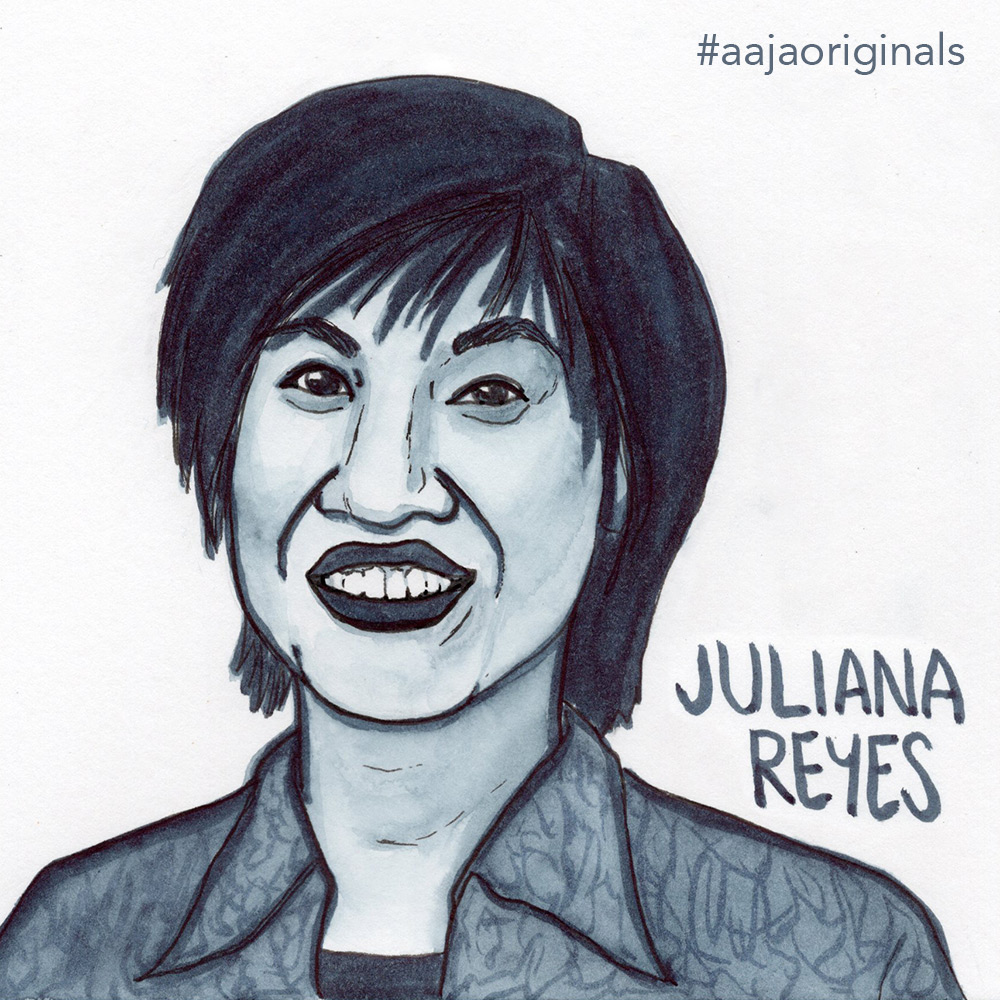Juliana Reyes works as a work and labor reporter at the Philadelphia Inquirer. She previously edited and reported for Technical.ly, a Philadelphia-based media startup focused on the tech industry. A three-time Philadelphia News Award winner, Reyes graduated from Bryn Mawr College in 2011 with a degree in linguistics and French.
How has being Asian American impacted your work as a journalist?
Yo…this is such a big question! But here’s a few things I’ve been thinking about recently. There are some Filipinx and Asian values that can sometimes make my job as a journalist harder, like deference to elders, the importance of keeping your head down, and the Filipinx concept of utang na loob, about what you owe people who help you. And so I’ve had to think hard about those values, which are so ingrained in me it feels like they exist under my consciousness, and why they’re important and how to navigate them while I’m working. Like: You can still be respectful to elders and ask them tough questions, and it’s also OK that it feels uncomfortable and unnatural.
At the same time, I think those values have helped me get stories and connect with folks on a different level — we are always bringing ourselves and our experiences to a story and I think it’s foolish to pretend otherwise.
Also, and I know this sounds incredibly on brand (join AAJA!) but it’s true: Being Asian has led me to seek out community and learn the importance of supporting not only Asian journalists, but Black, Latinx, indigenous, and mixed race journalists. That community has been crucial to my development as a journalist — it’s challenged me, it’s shaped what stories I believe to be important, it’s carried me in times when I’ve felt discouraged or hopeless. I’m so lucky to be Asian, to be Filipinx; you can’t do this work on your own.
How do you think your identity has affected how you approach certain stories?
I’m always striving for specificity. Being part of identity-related groups (there’s the Filipinx potluck group, the Asian American journalists, etc) has made me realize how much the media flattens people into categories that are convenient for the story they’re trying to tell. Like, I could tell you I’m the child of immigrants from the Philippines and you might think you know some of my story — but you wouldn’t, not really. All my friends in the potluck group could fit into that same bucket but we’re all so different. Our parents are from different parts of the country, have different stories about why and how they came, and what it’s been like for them in the States. And I want to bring that level of nuance and specificity to my stories. I don’t want to just describe someone as an “immigrant” and suggest that I’m communicating their story by using that word to describe them. I can’t always do that, but I try in little ways, like always asking what specific place a person is from in their country, instead of just using the country itself, and I try to bring that spirit to my stories, to hint at a world that exists beyond the reader, to remind them that there’s so much more they don’t know.
How has being Asian American affected how people react to your stories?
It’s hard (for me) not to notice that I don’t look like most of the people in the two communities I’ve covered most closely — the Philly tech scene and labor movement — but I think readers have really embraced my being Asian American and the other ways in which I’m different from whom they might expect to be covering these issues. I get the sense that it’s useful to have an outsider covering a community in part because they’re able to capture a sense of outsider-ness that many feel. That said, I don’t want to overstate my difference — there are other factors, like around class and education, that complicate what could seem like a straightforward depiction of “otherness.”
Who are other AAPI journalists who inspire you?
Long Distance Radio‘s Paola Mardo for her go-get-it-ness, Tom Huang for his commitment to community, my best friend Yowei Shaw for her dedication to telling tough stories.
But real talk, I’ve been finding a lot of strength from the youth recently, like Hannah Chinn, who recently interned on my desk at the Inquirer and took on such challenging stories — about unpaid student labor and a Philly school that’s sat vacant for years since it was shut down — with grace and fearlessness, and Anh Nguyen, a recent college grad who told me she’d get more students to join our chapter and ended up setting up a whole student chapter at Temple University. They call Anh their AAJA godmother. At their first public board meeting last month, as I watched their members lead a presentation on Asian stereotypes in the media, I got kinda misty eyed. “I think I’m gonna cry,” I told them, and one of their board members, a freshman who was Juuling next to me, said: “Do it.”
Artwork by Nicole Vas, a designer at The Hill newspaper.
AAJA’s Asian American Originals campaign is sponsored by our partners at Panda Express, which has launched its own campaign highlighting Asian Americans and Pacific Islanders making their mark.





Published by